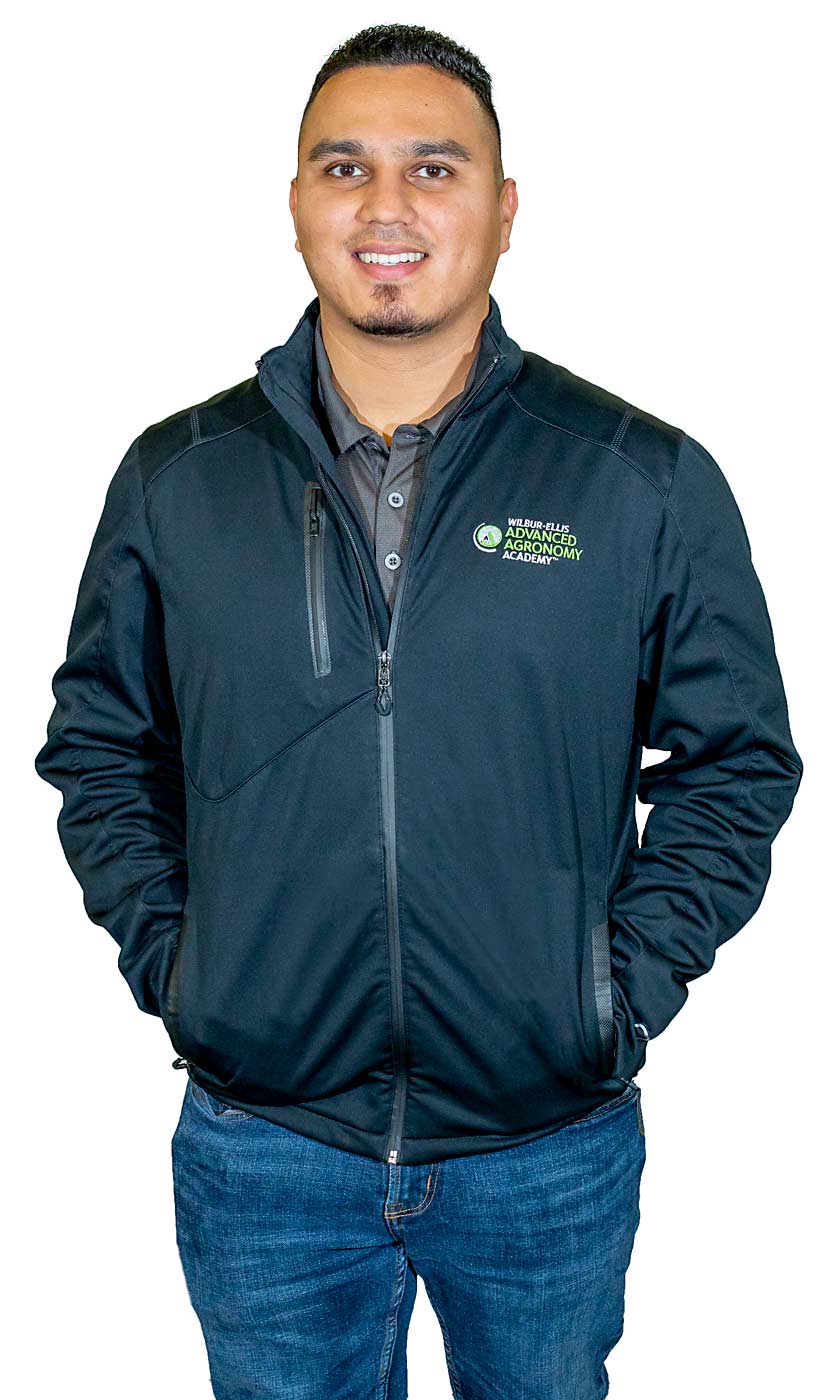family background/ Edgar is a second-generation grower who earned an associate degree in business from Columbia Basin College. He is the son of Alma Rosa and Gustavo Camacho.
age/28
grower/Yakima, Washington
crops/Apples, cherries, grapes and blueberries
business/Wilbur-Ellis
How did you get your start?
Growing up, I learned various farm jobs that included winter pruning and thinning in the summer when I was on break from school. My dad helped lay the foundation so I could chase a career in agriculture.
Of course, there were times in high school when I didn’t want to go into ag, but I knew I had a passion for it in my heart. Fast-forward to when I finished my AA in business administration, and I was looking for something to go into.
Dad let me know about different jobs in ag and he pointed me toward Wilbur-Ellis. Sure enough, they were looking for a full-time warehouse representative and I was able to come on board.
I was eventually inspired and mentored by people who worked as fieldmen and viticulturists. Those experiences were essential to me realizing that working as a crop advisor was what I wanted to do.
What was it like when you entered the field?
It was a big change when I switched from working in the warehouse to as a fieldman. Working in the field, you’re always needing to stay on top of educating yourself on what’s new in the industry.
Whether it’s learning about new products or technology, this part of the job motivates me to be a better resource for growers and bring more return on investment.
What is your role?
I work mainly in tree fruit, and I also work in wine grapes. As of 2021, I’ve been excited to learn about working with blueberries.
The most important thing I do every day as a crop advisor is being a resource for growers, keeping my eye on their farms and being passionate about checking their crops. One of the jobs that I enjoy is checking soil moisture on the farms with my own sensors. I feel it’s important to have your own measurements and to be a safety net for their built-in systems.
What are some of the challenges you help with?
One example would be working with codling moth pressures in a block. I’d meet with the grower and go over some solutions, whether it be a spray program for the emergence of the first generation, or if we need to make another follow-up spray in between to catch the second generation.
As a crop consultant, I need to know the types of pest programs that we offer and help find solutions for growers to reduce the codling moth pressures.
Another thing I do is help a grower increase their farm’s yield. I would start by going over the soil’s nutrient levels and calculating when the nutrients are available for tree uptake. Getting fertility correct is another big step.
Looking at their pruning program — whether they’re pruning light or if they are trying to achieve a particular crop load — are all important things to ask. All of the farm’s information can also help a crop advisor make better chemical thinning recommendations in the spring.
Also, if I see there’s not a lot of blossoms, maybe I’ll recommend using ethephon in their program to help with return bloom the next year.
In general, I am working to be a more well-rounded crop advisor, whether it’s better understanding a grower’s fertility program, their pest management program or how they want to use new technologies to improve their farms.
What advice do you have for young growers?
Starting out, you can find value in attending meetings and the annual horticulture conferences to learn and network.
Introduce yourself to others and be willing to put yourself out there to find opportunities. It may be uncomfortable at times, but you’re trying to level yourself up and be more valuable.
—TJ Mullinax







Great interview as well passion Edgar Camacho !!